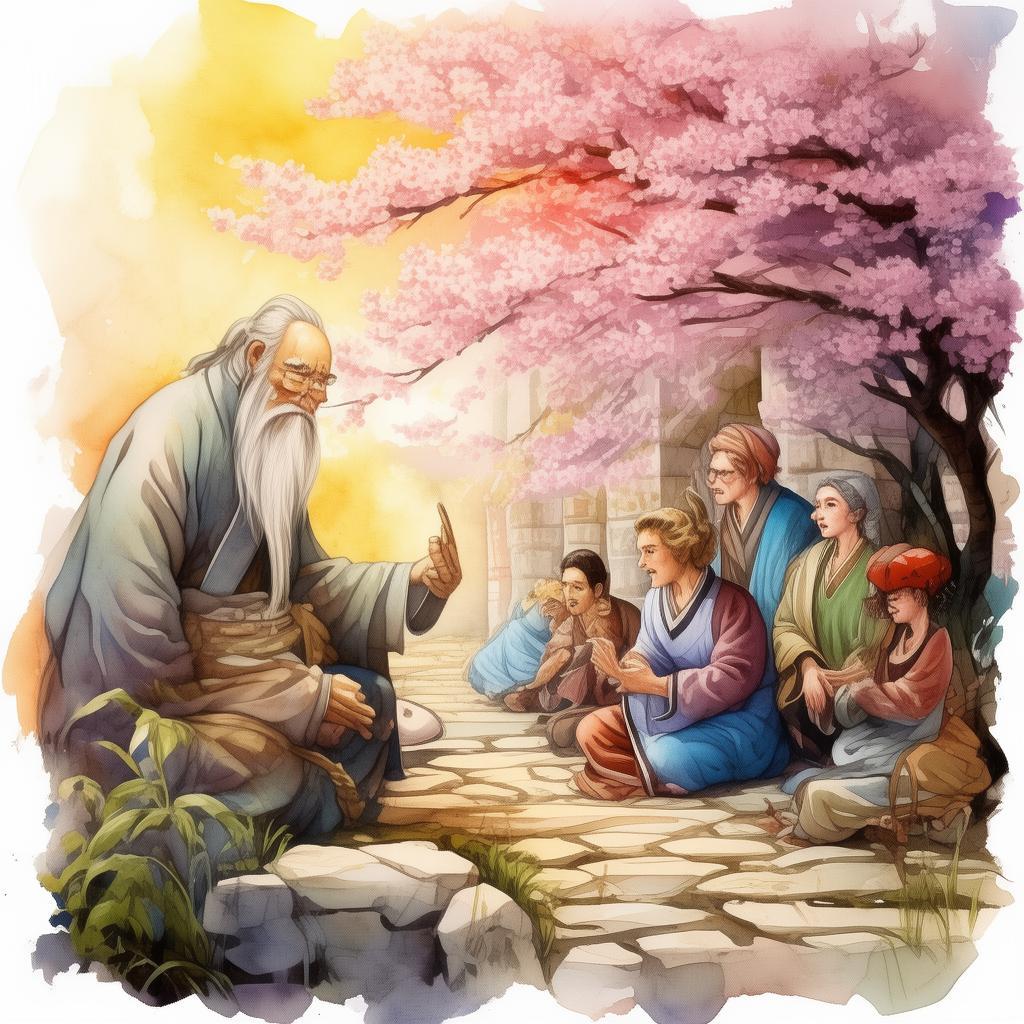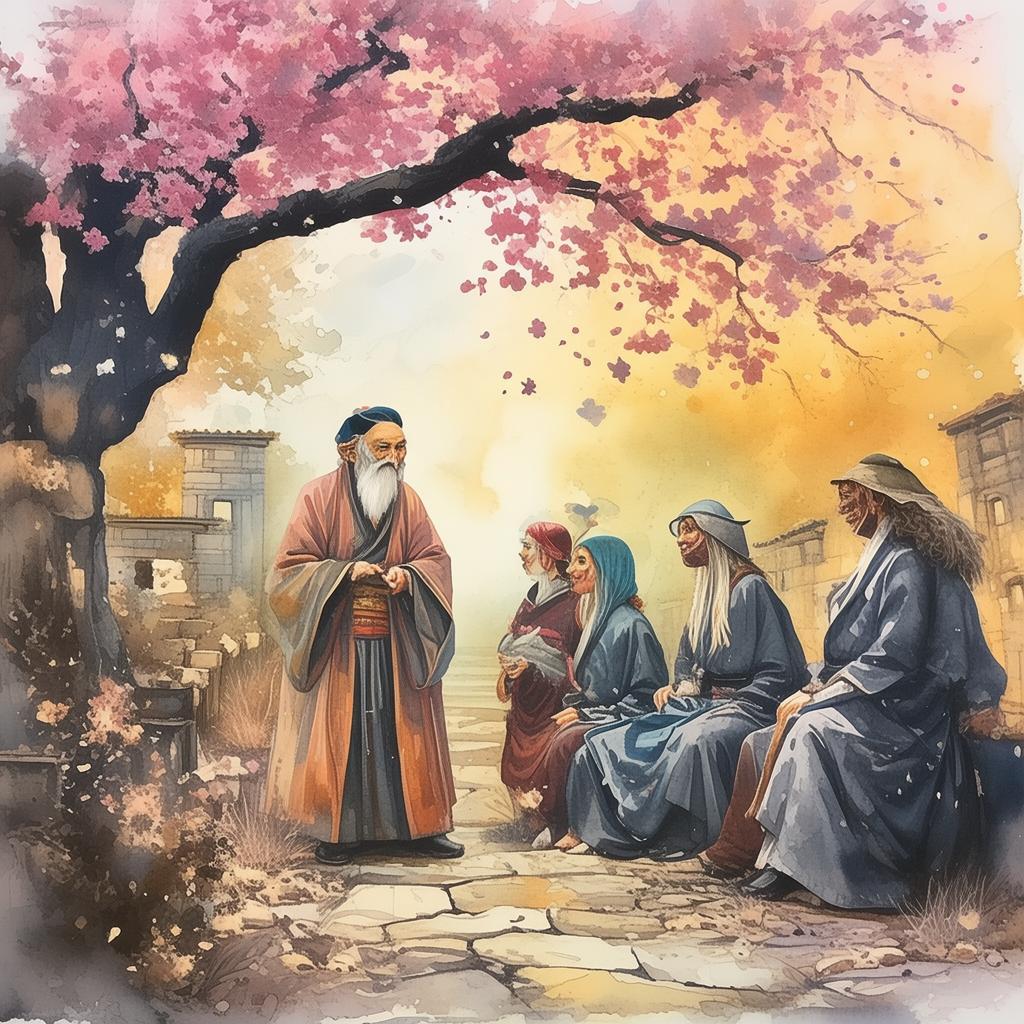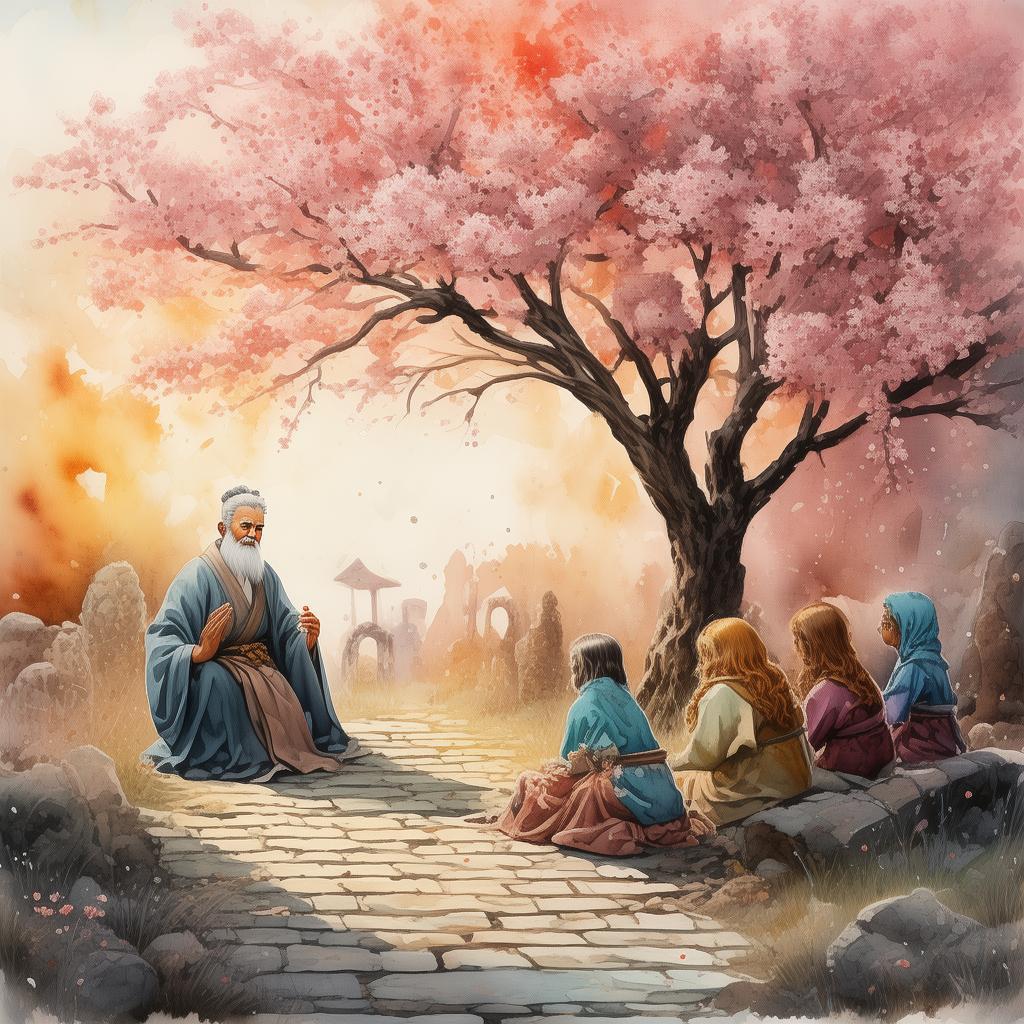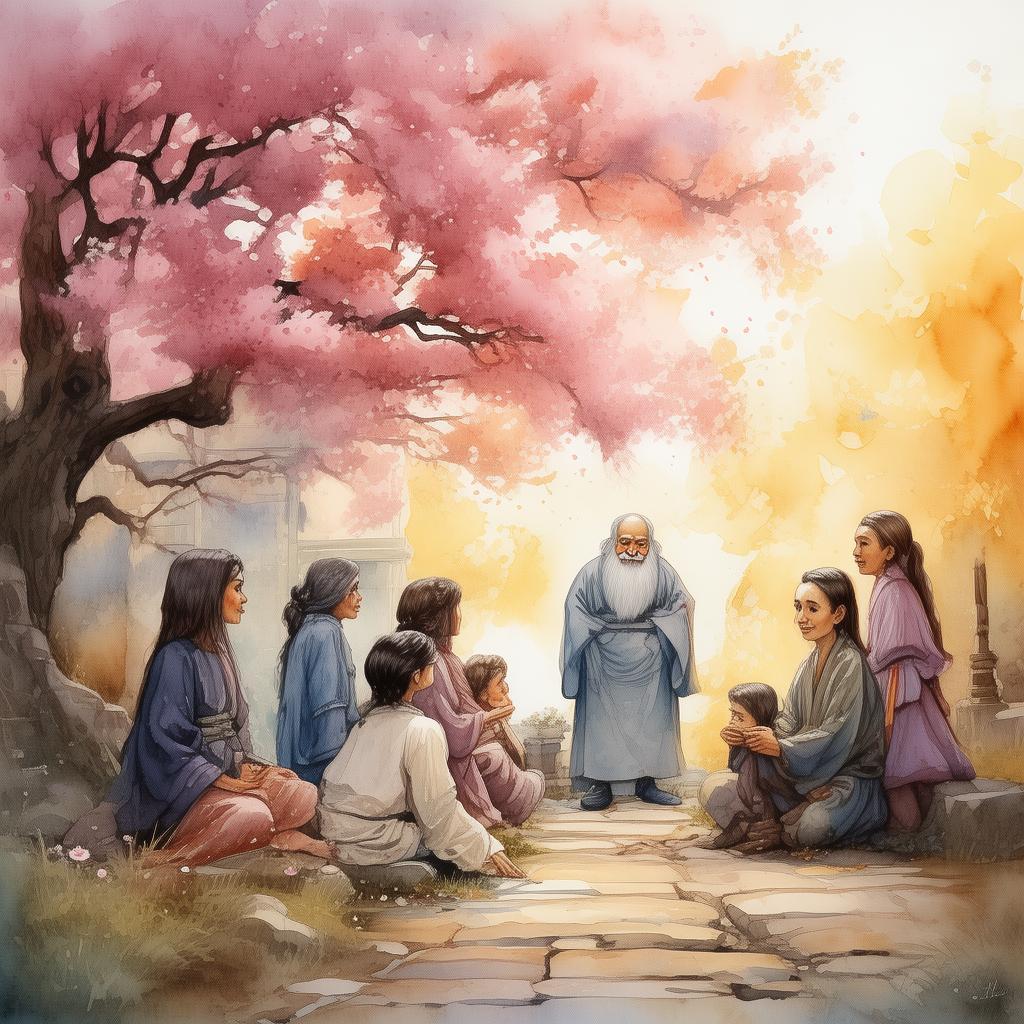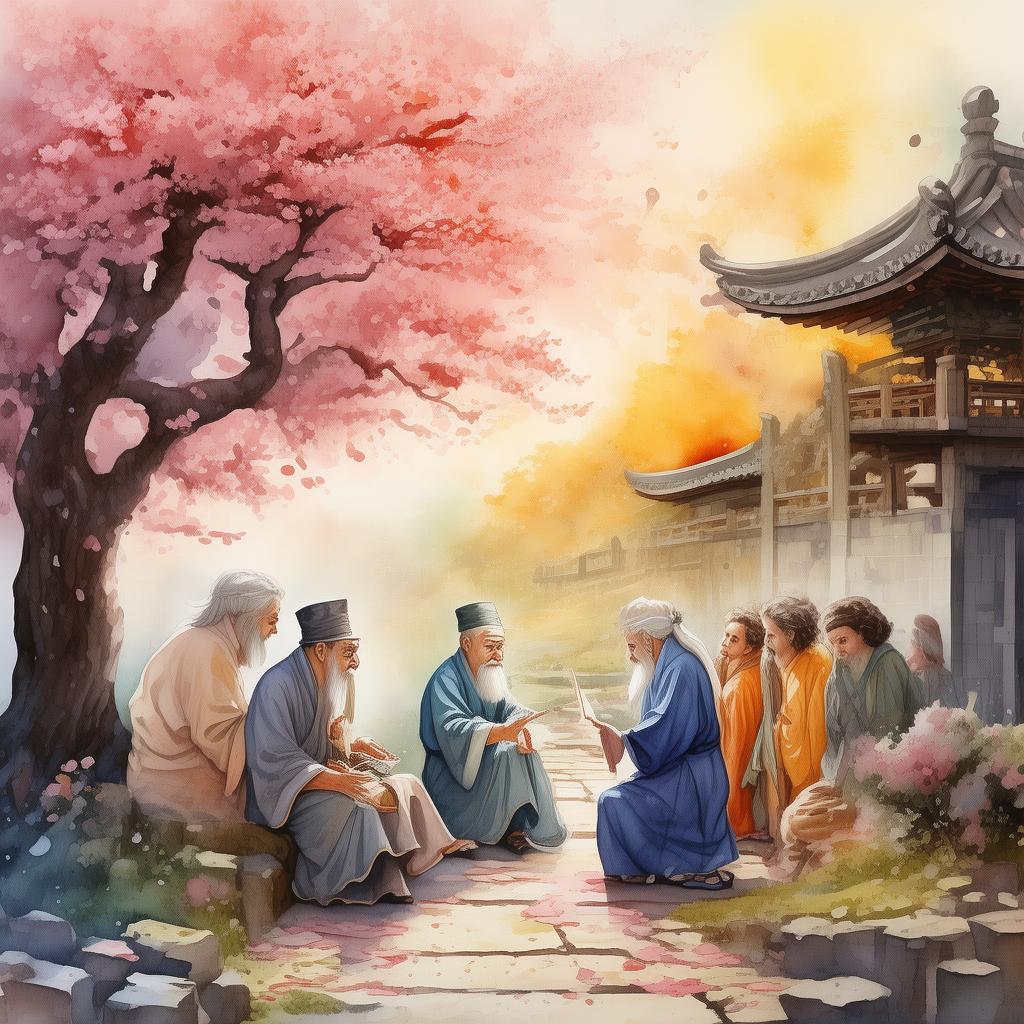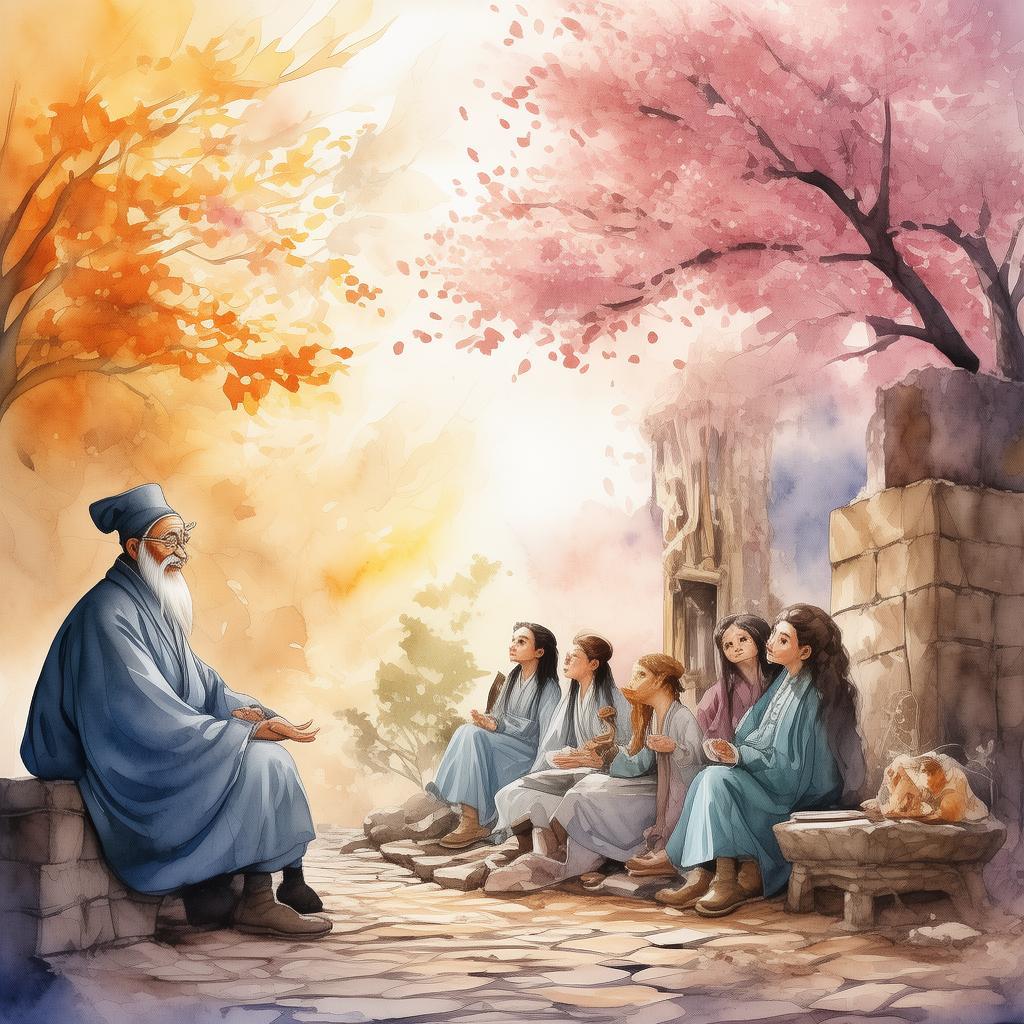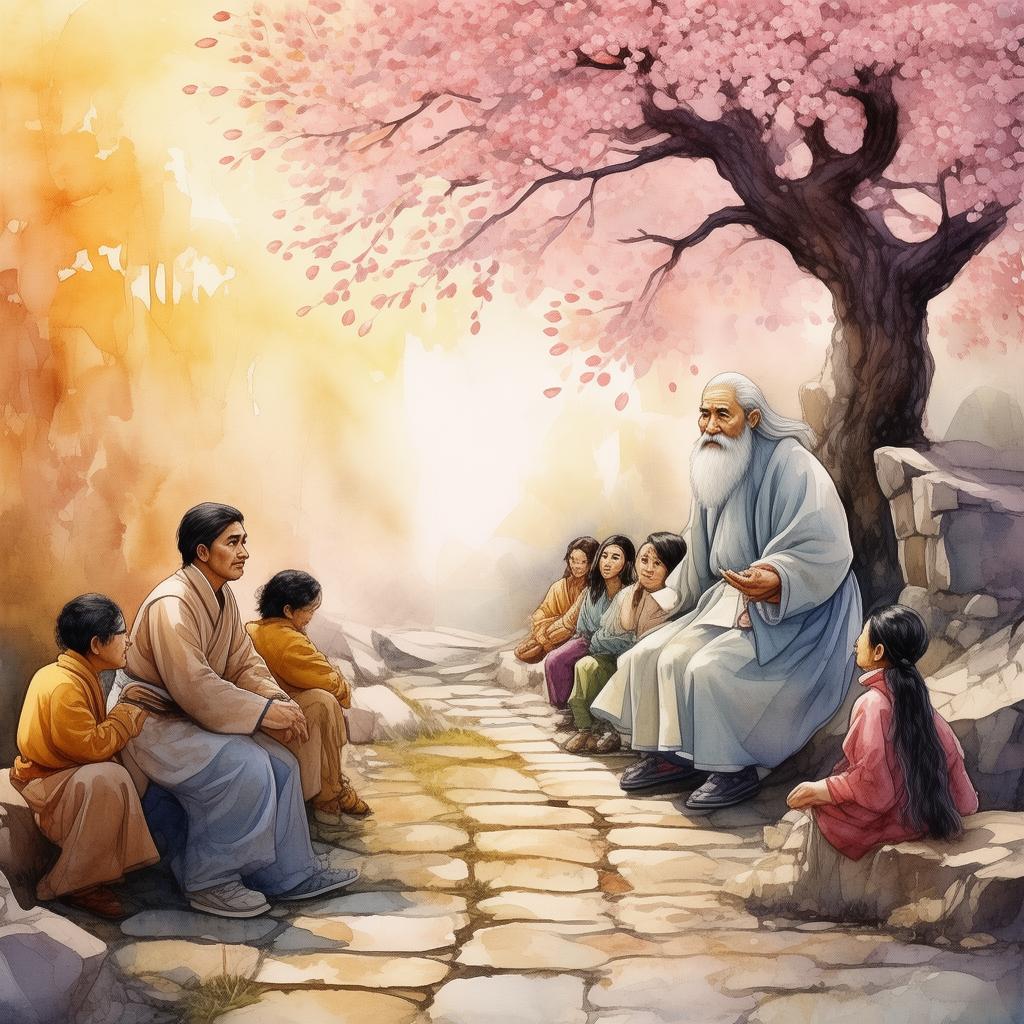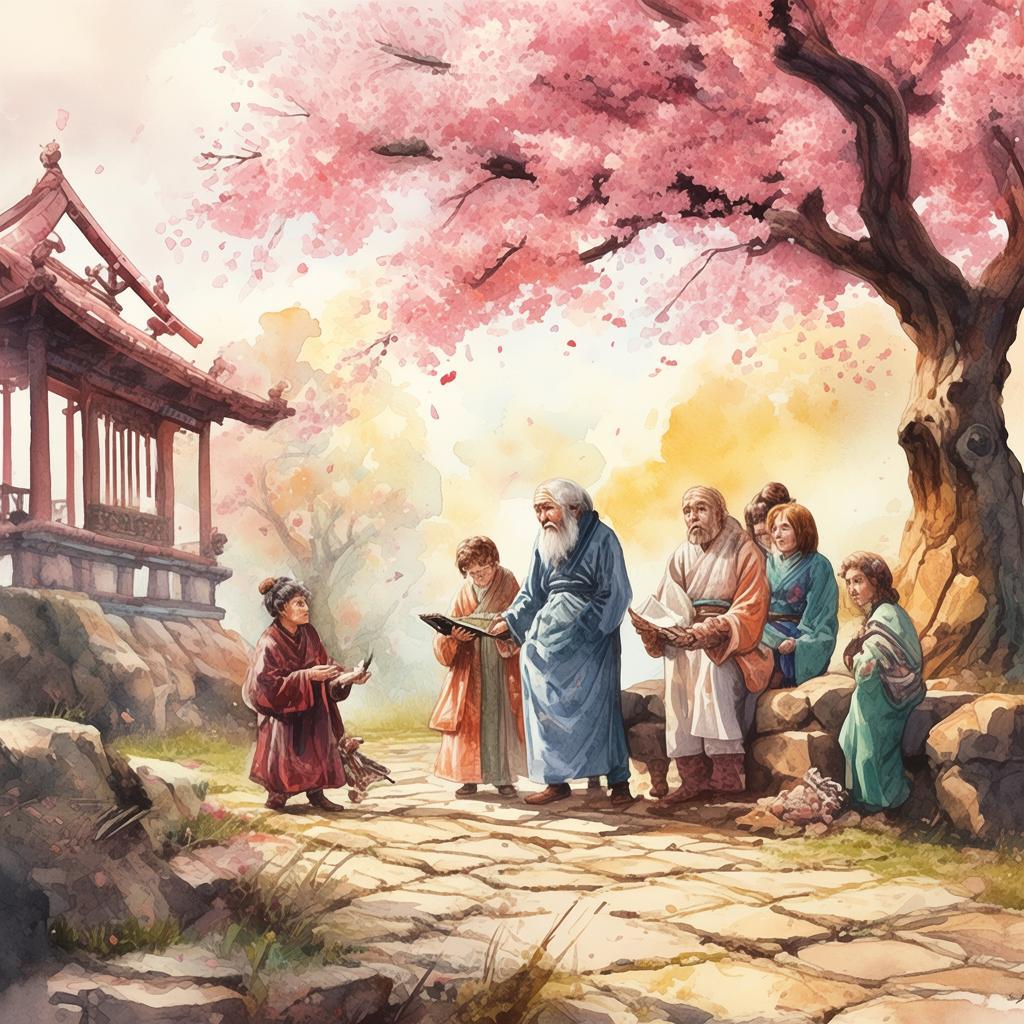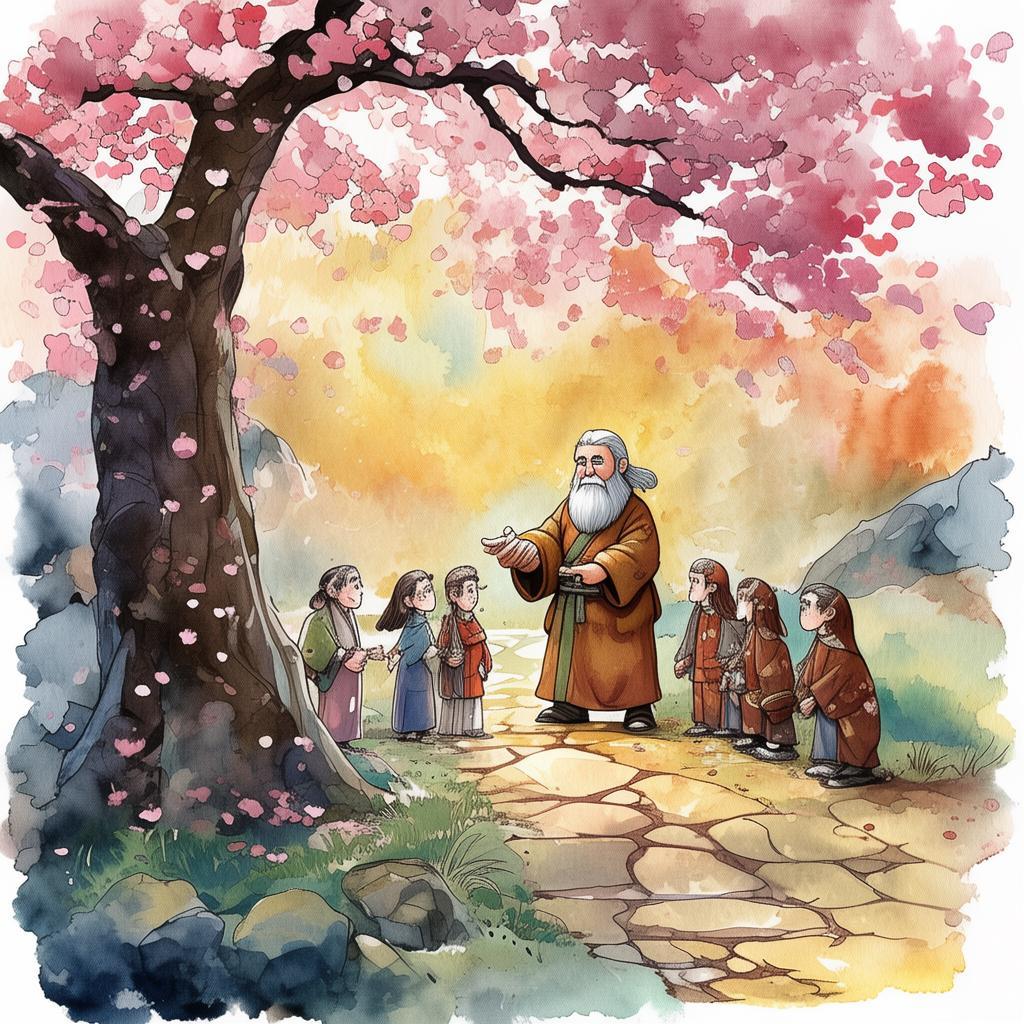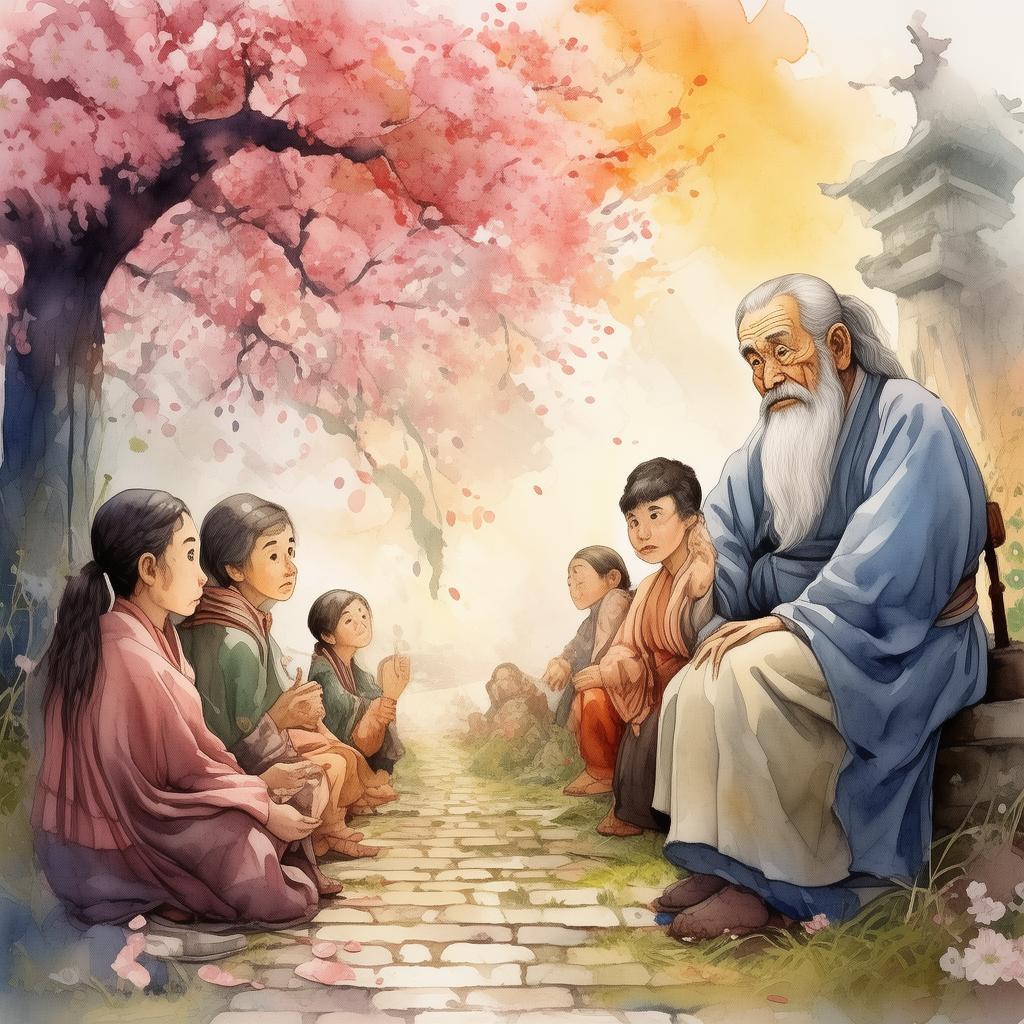Rediscovering the Heart of Wisdom
In the bustling city of Jingdu, nestled between towering skyscrapers and winding alleyways, there was a quaint kindergarten that seemed to exist outside of time. Known as the "Kindergarten of the Lost," it was a place where children from all walks of life gathered, their faces painted with the innocence of youth. Among them was a young student named Ming, whose life was about to take an unexpected turn.
Ming had always been a curious child, always asking questions and seeking understanding. His parents, both scholars, often found themselves explaining complex ideas to him, but it was never enough. Ming's thirst for knowledge was unquenchable. One day, while playing with his friends in the kindergarten's lush garden, he stumbled upon a hidden door, adorned with intricate carvings of ancient symbols.
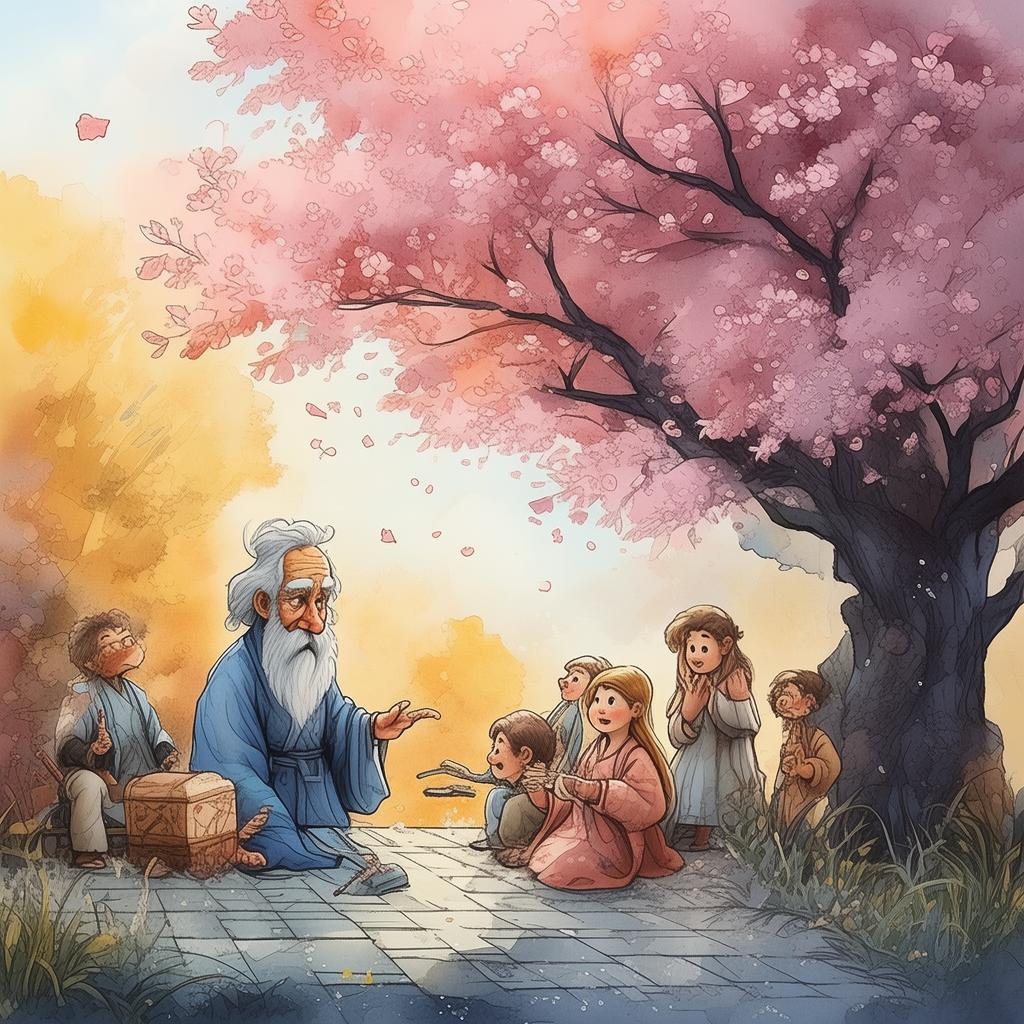
Curiosity piqued, Ming pushed the door open and stepped into a world that seemed to defy reality. The air was thick with the scent of ancient books, and the walls were lined with shelves filled with scrolls and tomes. Ming's eyes widened as he realized that he had found the "Kindergarten of the Lost," a place where the wisdom of the ages was preserved.
In the center of the room stood a wise old teacher, her eyes twinkling with knowledge. She introduced herself as Master Li, and she explained that the kindergarten was a place where lost souls could rediscover the heart of wisdom. "We teach not only the alphabet and arithmetic," Master Li said, "but also the proverbs and sayings that guide us through life."
Ming was fascinated. He had heard of proverbs before, but he had never truly understood their significance. Master Li began to teach him the first proverb: "The journey of a thousand miles begins with a single step." Ming listened intently, his mind racing with questions. "Why is this important?" he asked.
Master Li smiled warmly. "Because it reminds us that every great achievement starts with a small beginning. Whether it's a dream or a goal, we must take that first step to make it a reality."
As the days passed, Ming learned more proverbs from Master Li. Each one seemed to hold a piece of the puzzle that was life. "A stitch in time saves nine" taught him the value of timely action, while "Better late than never" encouraged him to embrace second chances. Ming's understanding of the world around him deepened, and he began to see the wisdom in the smallest of actions.
One day, Master Li called Ming to her side. "Ming," she said, "there is a proverb that I think you should understand more deeply. It is 'The wise learn from others' mistakes; the fool learns from their own.' I want you to go out into the world and see how others apply this wisdom."
Ming nodded, understanding the gravity of the mission. He left the kindergarten and ventured into the city, his heart full of determination. He visited shops, offices, and even the streets, watching how people lived their lives. He saw a man who had lost his job and was using the time to learn a new skill, a woman who was helping her neighbor with a difficult task, and a child who was helping his mother clean the house.
Ming realized that the proverb was true in every aspect of life. The wise indeed learned from others' mistakes, and they were able to avoid similar pitfalls in their own lives. The fool, on the other hand, often had to learn the hard way, making the same mistakes over and over again.
As Ming returned to the kindergarten, he felt a profound sense of growth. He had not only learned about proverbs but also about the human condition. He understood that wisdom was not just about knowing the right answers but about understanding the world and oneself.
Master Li smiled at him. "You have done well, Ming. You have not only learned the proverbs but also lived them. Now, take this wisdom with you and share it with the world."
Ming left the kindergarten, a changed man. He carried with him the lessons he had learned, the proverbs that had illuminated his path. He went on to become a wise and compassionate leader, always reminding others of the power of wisdom and the importance of learning from both others and oneself.
In the end, Ming's journey through the Kindergarten of the Lost was not just about learning proverbs; it was about rediscovering the heart of wisdom, a journey that would forever change him and the world around him.
✨ Original Statement ✨
All articles published on this website (including but not limited to text, images, videos, and other content) are original or authorized for reposting and are protected by relevant laws. Without the explicit written permission of this website, no individual or organization may copy, modify, repost, or use the content for commercial purposes.
If you need to quote or cooperate, please contact this site for authorization. We reserve the right to pursue legal responsibility for any unauthorized use.
Hereby declared.
